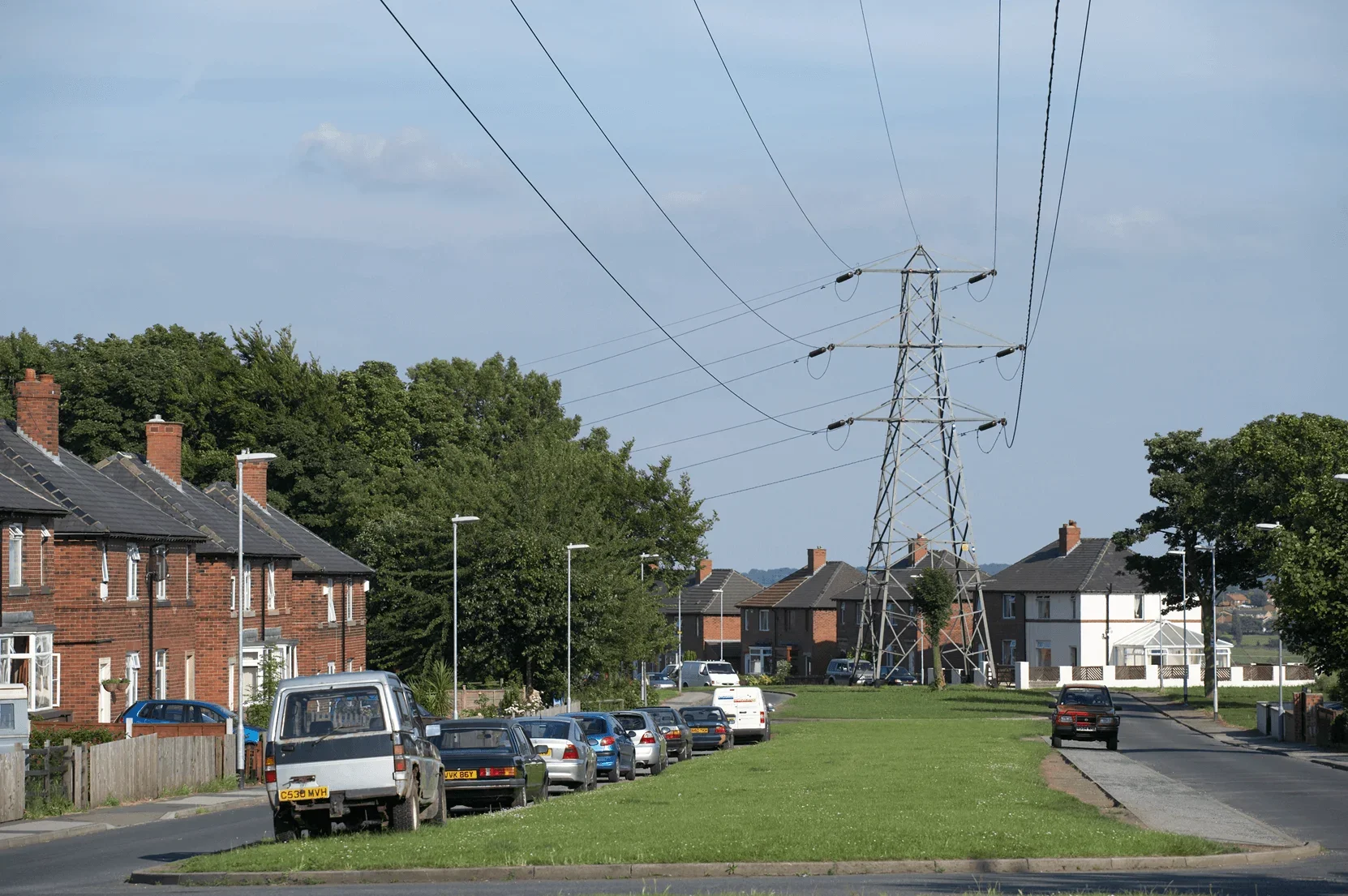BUSINESS ENERGY
Commercial property landlord energy advice
Read time: 5 minutes
By Les Roberts, Business Energy Expert
16th September, 2025
As a commercial landlord, your properties must meet specific energy efficiency standards. This ensures you stay compliant with regulations and can help lower your tenants' energy bills.
If you're not quite up to speed with your responsibilities as a commercial landlord or if you need to find the best energy supplier, this guide covers everything you need to know.

What responsibilities does a commercial landlord have?
As a commercial landlord, you have several responsibilities to ensure that your properties are safe, efficient, and suitable for tenants. While lease agreements often outline specific roles, you must understand the broader responsibilities.
Consider the following key areas of responsibility:
- Electricity, gas, and water supply: As a landlord, you are responsible for the safety and functionality of electrical wiring, gas piping, and water systems. Before leasing, ensure everything is safe and ready for tenant use. If appliances like boilers or cookers are included in the lease, you need to make sure everything is regularly maintained, unless specified otherwise.
- Fire safety: Depending on the lease agreement, fire safety responsibilities may rest with the landlord or tenant. In cases where landlords are responsible, this includes maintaining fire alarms, emergency lighting, and clear evacuation routes.
- Fixtures and fittings: Any fixtures or fittings provided by the landlord must meet safety standards and be tested accordingly. When tenants add their own fixtures and fittings, maintaining these becomes their responsibility.
- Asbestos management: Landlords must check for asbestos and carry out a risk assessment before leasing a property. While asbestos doesn’t always need removal, clear documentation and compliance with regulations are essential.
Do you need an EPC as a commercial landlord?
An Energy Performance Certificate (EPC) is mandatory for commercial landlords. It's a document that rates the energy efficiency of your property on a scale from A (most efficient) to G (least efficient). Here are some key EPC regulations:
- From April 1, 2018, properties must have at least an E rating for all new leases and renewals
- From April 1, 2023, this requirement extended to all leases, regardless of the lease's start date
- By 2025, properties will need a minimum rating of D, and by 2030, this will rise to C
If you don’t follow these requirements and display your EPC, you may be hit with a penalty charge. And if you don’t make an EPC available to any prospective buyer or tenant, you can be fined between £500 and £5,000 based on the rateable value of the building.
As with all governmental penalty charges, you do have the option to appeal if you believe you have been treated unfairly.
Who is the best energy supplier for landlords?
Choosing the right landlord energy supplier depends on the size of your property, energy usage, and specific requirements. While there isn’t a single "best" provider, some key factors can help you identify the most suitable tariff, including:
- Property size and usage: Large properties or multi-tenant buildings have different energy needs compared to smaller single-unit spaces. Assess your energy consumption to work out the right type of contract. For instance, a kebab shop that works outside of "standard" hours may benefit from a time-of-use tariff.
- Specialised landlord supply electricity tariffs: Ask your broker to look for tariffs designed for landlords, which may include features like consolidated billing for multiple properties or flexible options for vacant units.
- Green energy options: Choosing renewable energy can be a valuable selling point for eco-conscious tenants.
- Cost-efficiency: Compare gas and electricity tariffs to ensure you’re not overpaying. Bulk-buying or multi-property contracts could help you secure better rates.
Renting a business property: landlord responsibilities
When leasing a commercial property, you need to meet certain legal, regulatory, and ethical obligations while also providing a functional space for tenants.
Here are some of your key responsibilities as a landlord renting out a business property:
- Transparent communication: Clearly outline energy-related costs, responsibilities, and arrangements in the lease agreement. This ensures tenants understand their obligations and helps prevent disputes.
- Energy supply during vacancies: During vacant periods, landlords are responsible for energy costs. If you expect a property to be vacant long-term, you may save money with a no-standing charge contract.
- Regular inspections and maintenance: Conduct routine checks on fixtures, fittings, and utilities to ensure they remain compliant and safe for tenants.
Renting a business property: tenant responsibilities
Not all responsibilities fall on the landlord's shoulders. Here are some of the responsibilities of your tenants:
- Switching suppliers: If your lease makes tenants responsible for the bills, they have the legal right to choose the supplier and tariff. If you take responsibility as the landlord, your tenant has the right to ask to switch.
- Tenant-owned appliances: If tenants install or bring in any electrical appliances, they are responsible for their safety and maintenance. The property lease agreement will specify whether they are also responsible for maintaining the property's general electrical equipment.
- Business activities: Tenants should carry out a health and safety risk assessment for the workplace and take action to remove any energy-related hazards.
- Gas safety: If your tenant's business uses gas appliances, they must ensure they are maintained according to the manufacturer's instructions. This may require annual inspections by a Gas Safe-registered engineer.
What type of meter do you have at your property?
The type of meter that's installed at your premises can affect how much you pay for energy.
For example, half-hourly meters automatically send detailed readings and ensure your bills reflect your exact usage. This can help you avoid overpaying or underpaying, both of which can cause issues.
Standard meters may rely on manual readings or estimates, which could lead to inaccurate billing if not regularly updated. Prepayment meters can offer better control over spending but often come with higher unit costs.
The meter profile class indicates how your property uses electricity and is used by suppliers to categorise your supply and generate your tariff. Here are some things to look out for:
- Standard meter (MPAN 03-08): Used for most businesses on standard credit terms.
- Half-Hourly meter (MPAN 00): Required for properties with peak usage above 100kVA (or optional above 70kVA); enables ultra-accurate billing via automatic 30-minute readings.
- Prepayment meter: Can help with budget control or multi-tenancy blocks; tenants top up as they go, but this often comes at a higher unit cost.
- Smart meter: Sends automated readings, supports both credit and prepayment, and may soon be upgraded to half-hourly use as MHHS rolls out.
For a full breakdown of gas and electricity meter classes, check out our guide to business energy meter installation.
How to compare commercial landlord energy suppliers
As with all energy consumers, you should be able to save money by comparing energy tariffs and fixing your rates. If you have more than one property, you may also be able to save time and money by consolidating contracts for multiple properties. We can help simplify this process by identifying our best deals for multiple sites and commercial properties.
Steps to compare landlord electricity supply tariffs:
- Gather key information: Have recent energy bills, Meter Point Administration Number (MPAN), Meter Point Reference Number (MPRN), and contract end dates ready
- Assess your needs: Determine the energy usage for each property and consider features like renewable energy options or flexible terms for vacant units
- Use a comparison service: Expert services can quickly analyse your requirements and recommend the most cost-effective contracts.
Click the "Compare Tariffs Today" button on the right of the page to get started.
Tips for improving energy efficiency
Switching suppliers is just one way to save money. Improving energy efficiency can also lower costs while enhancing the value of your property by helping it meet EPC requirements.
Here are some ways to make your commercial property more energy-efficient:
- Upgrade lighting and appliances: Replace old lighting with energy-efficient LEDs and consider upgrading outdated appliances to reduce energy consumption
- Improve insulation: Proper insulation reduces heating and cooling costs, making your property more energy-efficient and appealing to tenants
- Install smart meters: Smart meters provide real-time energy usage data, making it easier to monitor consumption and identify inefficiencies
- Switch to renewable energy: Renewable energy tariffs contribute to higher EPC ratings and align with tenants seeking sustainable business practices
Check out this guide for more on business energy efficiency.
Effectively managing the energy supply at your commercial property can make a significant difference to your profitability and compliance as a commercial landlord.
From selecting the best landlord energy supplier to ensuring your building meets the necessary EPC standards, proactive energy management benefits both landlords and tenants.
Start comparing landlord gas and electricity supply tariffs today to save time and money while ensuring your properties are energy-efficient and ready for tenants. Click the "Compare Tariffs Today" button on the right of the page to start a business energy price comparison.
Is it time to compare business energy quotes and switch?
Take the hassle out of sorting your next energy deal. We compare from a panel of suppliers. You choose the rates that are right for your business.
By clicking ‘COMPARE TODAYS RATES’ you agree for us to search your current energy supplier and usage though industry held data. Enter manually
Our experts share essential knowledge on business energy
All related guides
View all energy guides
- A complete guide to business energy for offices
- A complete guide to business energy for restaurants
- A complete guide to business energy for shops
- Average business energy consumption - How much does your business use?
- How to get a business energy audit to save money and boost efficiency
- A complete guide to business energy bills
- Business energy brokers – everything you need to know
- What are no standing charge business energy tariffs?
- Business energy efficiency: how to save energy at your business
- Change of Tenancy - Moving business premises and your energy contract
- Commercial property landlord energy advice
- Energy performance certificate for business
- A complete guide to half hourly electricity meters
- How does the energy market affect the cost of your energy bills?
- How switching to energy efficient lighting can save your business money
- How to pay your business energy bills to save money and avoid late fees
- How your business credit score affects your energy deals
- Compare large and industrial business energy prices
- Prepayment meters for business: The complete 2025 guide for SMEs
- What are renewable energy certificates and REGOs for small businesses?
- Renewable Energy for Business
- Business Smart Meters: Your Guide to Savings, Installation, and Supplier Comparison
- Commercial solar panel electricity
- The nuclear RAB levy explained: what it means for your business
- A business guide to time-of-use energy tariffs
- Business energy tariffs explained
- Everything you need to know about the Smart Export Guarantee (SEG)
- Compare small business & micro business energy prices
- Compare the cheapest business energy suppliers
- What is the Climate Change Levy?
- Business energy meter installation: Your complete guide
- Multi-site meters and business energy management
- How much is VAT on business energy?
- What happens when your energy supplier goes bust?
- What is a letter of authority (LoA) for business energy?
- What is Market-wide Half-Hourly Settlement (MHHS) and how does it work?
- What is business microgeneration?
How to switch business energy suppliers with MoneySuperMarket
We can switch your business to a better energy deal in three simple steps
1
We find your details
Just enter your business address and we'll use industry data to accurately find and understand your energy usage.
2
We talk through your quotes
One of our UK-based energy experts will search our supplier panel and give you a call to talk through your quotes.
3
You choose the deal you want
With all the information to hand, you choose the deal that best suits your business and we’ll handle the switch for you.
Compare today’s business energy rates
By clicking ‘COMPARE TODAY'S RATES’ you agree for us to search your current energy supplier and usage though industry held data. Enter manually







